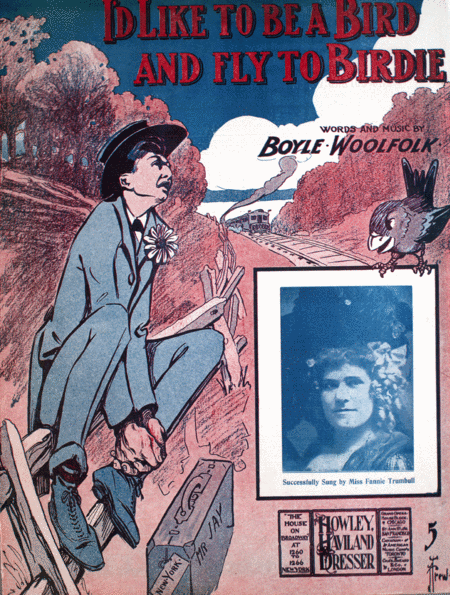Piano and voice - Digital Download SKU: LV.19379 Composed by Boyle Woolfolk. Railroads, Railroad tracks, Fences, Luggage, Portraits, Courtship & love, Travel, Money, Poor persons. Lester S. Levy Collection. 7 pages. Published by Johns Hopkins University Sheridan Libraries (LV.19379). I'd Like to Be a Bird and Fly to Birdie. Words and Music by Boyle Woolfolk. Published 1903 by Howley, Haviland, Dresser, The House on Broadway at 1260 to 1266 in New York. Composition of strophic with chorus with piano and voice instrumentation. Subject headings for this piece include Railroads, Railroad tracks, Fences, Luggage, Portraits, Courtship & love, Travel, Money, Poor persons. First line reads My sweetheart left me late last week to join a burlesque show.. About The Lester S. Levy CollectionThe Lester S. Levy Collection of Sheet Music consists of over 29,000 pieces of American popular music. Donated to Johns Hopkins University Sheridan Libraries, the collection's strength is its thorough documentation of nineteenth-century American through popular music. This sheet music has been provided by Project Gado, a San Francisco Bay Area startup whose mission is to digitize and share the world's visual history.WARNING: These titles are provided as historical documents. Language and concepts within reflect the opinions and values of the time and may be offensive to some.
